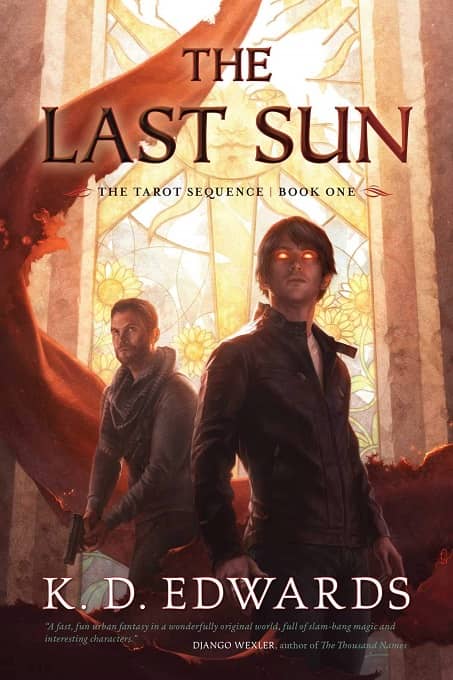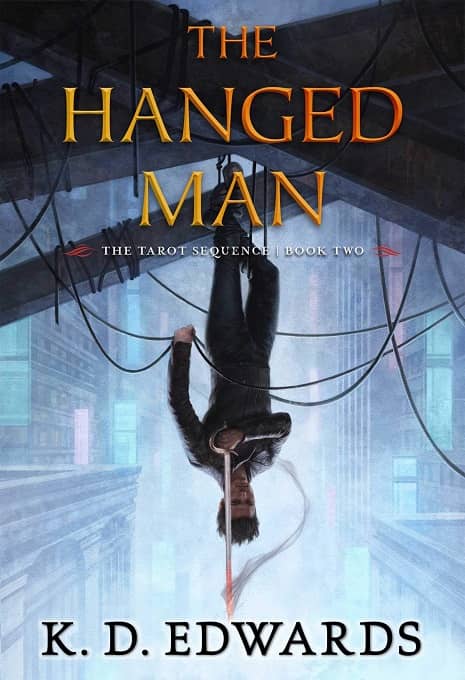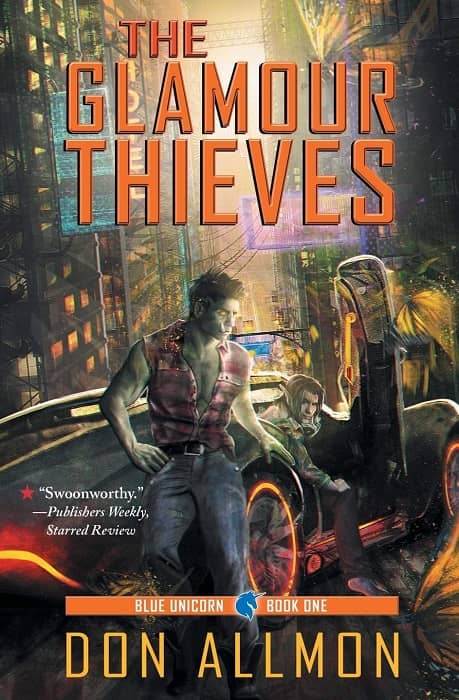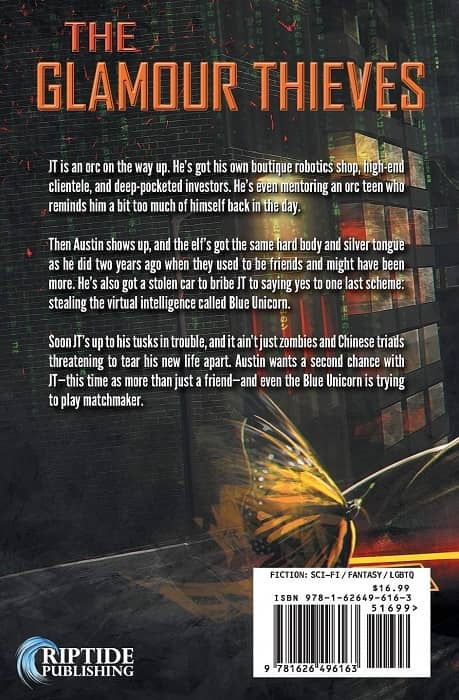Four Things I Learned Publishing a New Modern-day SFF Set in a Reimagined Atlantis
 |
 |
Here’s a quick list of 4 things I learned publishing a new modern-day SFF set in a reimagined Atlantis. (The Last Sun and The Hanged Man are the first two books in The Tarot Sequence.)
- Try to get an agent or publisher who supports your vision.
By the time I sent a query to an agent, I had 9 novels planned in the series, with a strong idea of each installment’s development arc and plot. I knew in advance this was ambitious, and that I was 100% committed to it if at all possible. Getting a series launched is… not easy. Bookstores and therefore publishing houses are less and less inclined to make any far-reaching commitments, especially for debut authors, and really especially in crowded subgenres like urban fantasy.
What helped me get started with an initial 2-book contract was an awesome, awesome agent who understood what I wanted to accomplish, and framed her guidance and recommendations and sales strategy around that. That’s not as simple a statement as it sounds. It involved me clearly articulating my goals; and then being open to her feedback on the realities of my dream, including PROs and CONs.
My agent Sara (Sara Megibow of kt literary) is exceptional at what she does. She’s industry-savvy, heavily-networked, and very practical. Practicality, especially, is important. What happens if my contract ends at 2 books? What if I really want to continue writing 7 more novels? From the start, Sara had a plan. There’s very little that will surprise me next, because she’s prepared me so well.
So, in summary, I’d stress that even if you have a throw-it-against-the-wall personality, an agent can help craft a strategy for you. But if you DO have a strong vision be prepared to articulate it up front. That paves the way for clear end goals.
- 90% of my job is to write.
I felt angst, at first, over things on which I had no control. What if I hate the title? What if the cover sucks? What if I don’t like the book design? Are they sending my book to big review sites? What about awards submissions? What about, what about, what about…. At the end of the day, almost ALL of this was handled without me. None of this rested on my shoulders, and it all worked out. They came up with a title I loved. They picked an exceptional cover artist who welcomed my input on cover design. And there were marketing folk, publicity folk (shout-out to Sami, who set this up, and has been a godsend since I started working with her), production folk, and my agent to handle all the rest.
I want to be clear about one thing, though: I stayed aware of what was happening. I volunteered to lend a hand when it made sense. I still had a role to play. I just also needed to accept the lead & advice from people more experienced than me. My job? Was to write.
- That other 10%?
I am an introvert. When I signed my first contract, I had no web page, no blog, no social media presence. Just the thought of joining Twitter made me want to hide under a blanket. And the idea of SELLING? Of being thrown onto a conference floor and asked to pedal my book? Oh shit no.
This is what I found out: Yes, I needed a website. And yes, ideally, I needed some sort of social media outreach. I decided to join Twitter, and it’s been one of the best experiences of my life. You hear a lot from people about how toxic social media can be, but a lot of that comes down to the people you follow, and how you use the mute button. It took me a while to learn how to set my filters so that I was surrounded by positive and upbeat voices, but I did it.
And oh my GOD the support my readers have given me in return. Every day I have messages filled with compliments, or praise, or artwork, or song recommendations, or photos of my book in settings across the world. I’m not sure how I got so lucky – maybe a combination of my story, and my insistence on being as positive and genuine as I could on Twitter, and grass roots recommendations – but I’ve been paid back for the work I put into social media ten-fold.
I also needed to revise my preconceived notions of conferences. I dipped my toe in slowly, and even then with the initial help and support of my agent. She had me attend a wonderful conference called ConStellation Nebraska, where Julie Czerneda and Don Allmon were guest authors. (Have you read Julie Czerneda? Have you met Paul and Esen? If you like sci-fi with heartwarming found-family elements, find out more. She’s on my must-buy list. And what about elf-orc hardcore romance? Check out Don’s Glamour Thieves. So damn creative.)
 |
 |
I learned that conferences weren’t just about mindless shilling in wide open rooms. There are events, and programming, and guest panels, and PASSIONATE people who care about your genre. People walk away from these mid-sized conferences having had a life experience. There are tears at the end, as everyone gathers before they walk back to their normal life. It is a mind-blowingly positive experience, and if you let yourself be a part of it, you’ll always remember it too.
- Read your reviews.
I still haven’t decided whether there are really authors who don’t read their reviews, or whether they just lie about it. I know there are some authors who graphically, clearly, loudly warn you against the practice. Me? I’ve read every word people have written about my two books. Hell, I’ve gone on international Amazon sites and read the reviews posted there. I’ve used translation software to make sure I’m not missing anything.
There are going to be people who hate your book, and employ a lot of venom in telling you exactly what that means. Those aren’t the reviews you necessarily need to spend a lot of time with. What I’m talking about are those 3, 4, or 5 star reviews that say “I loved everything about your novel BUT…” It’s that BUT that is going to make you a better writer.
I thought I was the Hierophant of Diversity because I wrote a story with lots of white gay guys. Wrong. The readers who loved my novel best, in their reviews, kindly pointed out that I could have had better representation of other queer identities. That I could have had more people of color. That I could have had a woman – any woman – who served a role outside villain.
So my second book? I introduced some female characters who I now adore. I have better representation of people of color. I’ve tried to show different aspects of relationships and sexuality – such as ace characters, and demisexuality. And my series is so much the better for it. People have notably and emphatically mentioned this, and it’s rewarding as hell to read those reviews.
Anyway! There are no hard & fast rules here. What happened to me is my experience; and all published authors walk their own path. I just jotted down a few lessons I learned on the way. Good luck with your own writing.
K.D. Edwards, author of The Tarot Sequence, lives and writes in North Carolina, but has spent time in Massachusetts, Maine, Colorado, New Hampshire, Montana, and Washington State. (Common theme until NC: Snow. So, so much snow.) Mercifully short careers in food service, interactive television, corporate banking, retail management, and bariatric furniture have led to a much less short career in higher education, currently for the University of North Carolina System.